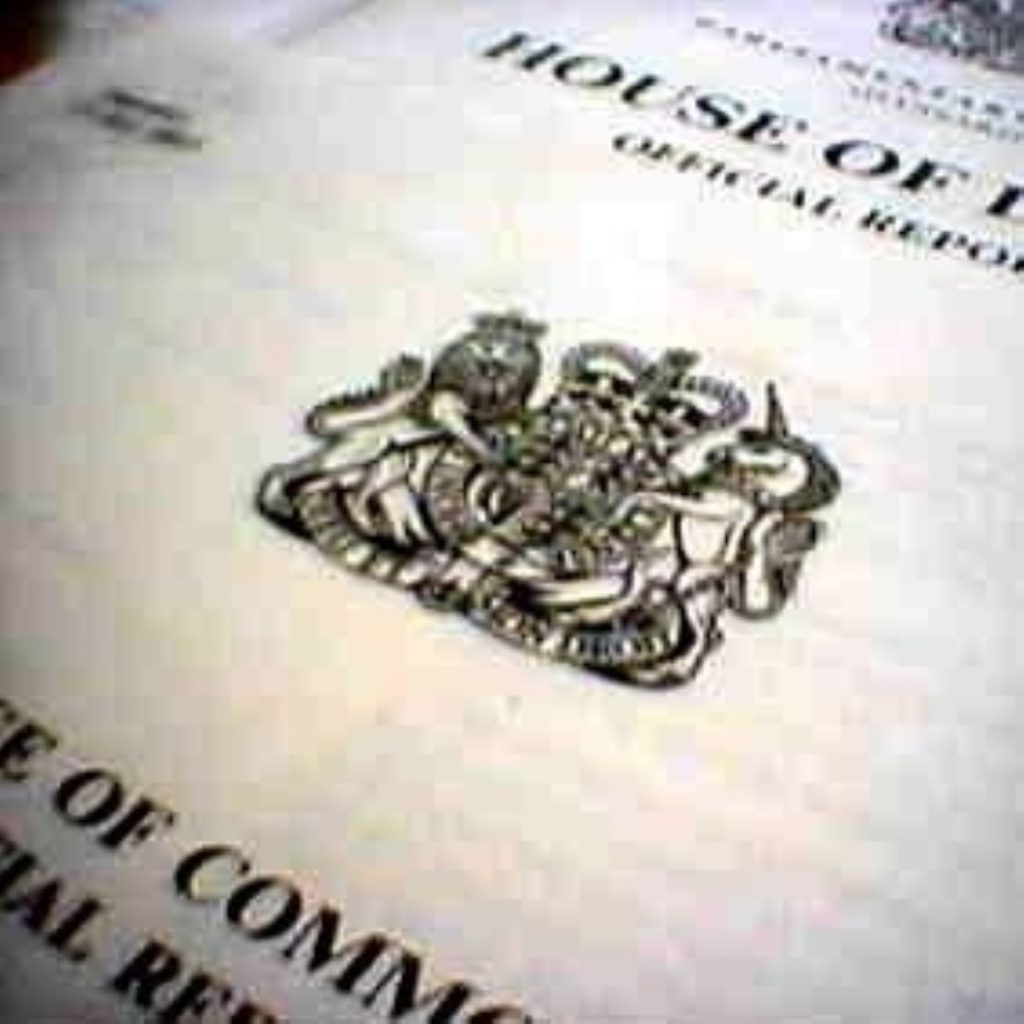‘Chilling’ expenses bill pressures govt
By Alex Stevenson and Ian Dunt
More pressure was placed on the government to retreat on the original clauses of the parliamentary standards bill as debate continued in the Commons this afternoon.
MPs are debating the bill on its third and final day on the floor of the Commons.
Having abandoned plans for a compulsory code of conduct and forced MPs to declare their financial interests, justice secretary Jack Straw faced further demands for concessions today.


The government is rushing the bill through parliament’s lower House in a bid to see it become law by the summer recess, now less than three weeks away.
politics.co.uk poll: Has the election of a new speaker cleaned up parliament?
Among the measures proposed are the establishment of an Independent Parliamentary Standards Authority and a new criminal offence outlawing knowingly false expenses claim.
Today Mr Straw faced criticism over clause eight, which makes any evidence of proceedings in parliament admissible in proceedings for an offence listed under the bill.
The clerk of the Commons, Malcolm Jack, had warned last week that this could have a “chilling effect on the freedom of speech of members”.
If the qualification were narrowed to comments made by the MP in question, the trial could be deemed to be unfair under the European Convention on Human Rights as the MP could not defend themselves by referring to the comments of other MPs.
This morning the justice committee rushed out a report endorsing Mr Jack’s viewpoint.
And the joint committee on human rights said the bill did not satisfy the right to an “independent and impartial tribunal” which is required by common law and Article 6 of the European Convention on Human Rights.
“The procedural safeguards in the bill fall well short of the minimum requirements for fairness and are insufficient to prevent breaches of the right to a fair hearing occurring in practice,” the committee found.
Its chair, Andrew Dismore, said: “It is ironic that a bill which is primarily designed to restore public confidence in the House of Commons is being rushed through parliament and will not receive proper scrutiny.
“We are clear that if the Bill is passed as it stands, it will only be a matter of time before the European Court of Human Rights finds a violation of a member’s right to a fair hearing.”
It follows disagreement about other elements of the bill on the second day of the debate yesterday.
Shadow leader of the House Alan Duncan was dissatisfied with the title of the debate, saying a better but longer name might be the “parliamentary payments authority and the parliamentary payments bill”.
“We have a proliferation of the use of the words ‘standard’ and ‘standards’, but this is really about money,” he said.
Conservative backbencher John Redwood, meanwhile, was concerned about the grounds for the new expenses watchdog.
“The government have not made the case for the new authority. There was little detail in the remarks yesterday about the sort of people it would comprise, the cost, and how the job would be done differently from the way in which our staff currently undertake it,” he said.
Sir Patrick Cormack, who stood to reform parliament as Speaker earlier this month, made clear he also dissented.
“I believe that we are where we are today because of the prime minister’s determination to foist on us an instrument that is destructive of this parliament and its members’ rights,” he said.
And fellow Tory Bill Cash echoed concerns made by clerk of the House Malcolm Jack that the supremacy of parliament and the 1689 Bill of Rights were threatened.
“That is where the bill gets into deep trouble,” he said.
“I shall not go into that now, although not because it is out of order-it is not-but because I prefer to reserve my arguments for the new clauses tomorrow, on which I shall have a certain amount to say.”
Plaid Cymru leader Elfyn Lwyd agreed, referring to Monday’s decision to abandon the inclusion of a code of conduct.
“At that stage, nobody foresaw the attack on the basic freedoms of our constituents and on our basic freedoms, including, crucially, our freedom of speech,” he said.
Justice secretary Jack Straw accused Mr Lwyd of “tilting at windmills”, in response to which Mr Cash asked: “Who is Don Quixote?”
“Not me,” Mr Straw replied.

